Words of a fed-up Rohingya refugee

It has been close to six years since hundreds of thousands of Rohingya faced a deadly genocide by Myanmar's military and fled the country in search of protection and refuge in neighbouring Bangladesh. The Rohingya population has been undergoing persecution, discrimination, arbitrary arrests, and atrocities in Myanmar for over seven decades. Their condition is alarmingly worsening in the squalid refugee camp in Bangladesh, and they are currently facing a significant risk of generational loss due to lack of access to formal education and the loss of their culture, traditions, and language.
As an educator and poet hailing from the Rohingya community, I have had the opportunity to closely observe the students and people living in the refugee camp. I have noticed that the students prioritise learning English and Bangla over Burmese. In fact, for the first three years after arriving in Bangladesh, they exclusively studied English. It took considerable efforts from teachers to get them back on track with the Burmese curriculum taught in community-run schools. Meanwhile, the adults in the camps have taken to watching Bangalee TV shows, listening to Bangalee Islamic preachers, and frequently conversing with one another in Bangla, instead of watching lectures by Burmese scholars and speaking in Burmese. This is quite normal for the people who have encountered bad experiences and fled their homes, as they may wish to turn away from everything that reminds them of "Myanmar." At the same time, it is important for us not to break the chain of our ancestors, in order to be able to exist as a culturally and historically unique and enriched community on this planet.
Due to our isolation from our motherland for more than five years, we are gradually losing touch with our cultural practices that have been passed down from one generation to the next. The traumatic experiences that we faced have left us feeling hopeless and disheartened, with many of us lacking the motivation to preserve our traditions or learn more about them.
Our children and youth have adapted to the local culture to varying degrees, and their lifestyles have changed significantly compared to what they were in Myanmar. For instance, they now wear trousers instead of the traditional longyi, which may be due to dress code restrictions imposed by NGOs and INGOs. Rohingya individuals are not permitted to work officially while wearing longyi, and even wearing traditional clothing in public can result in mockery and devaluation. Upon my arrival in Bangladesh in 2018, I wore a longyi to the office, but a staff member informed me that trousers and a shirt were the required attire in the office, as this was not Myanmar but Bangladesh. I was sent back to my shelter to change into appropriate clothing. In another instance, I remember sitting beside a woman in a CNG-run auto-rickshaw who referred to me as a "geriatric" for wearing a longyi. I felt ashamed and embarrassed, and from that day on, I decided to stop wearing longyi altogether.
This disregard for our culture and traditions has resulted in a generational loss for our entire ethnic group. And what I mean by generation loss is the loss of our traditions, practices, terminology, heritage, and legacy inherited from our forebears, which we embraced and cherished in Myanmar for centuries.
Our language, which serves as a crucial marker of our existence in our homeland, is currently facing the threat of extinction. Many individuals take pride in speaking a mixture of Rohingya, Bangla, and English terms, which they perceive as being superior. Unfortunately, we have already lost our land and our name – Rohingya – which makes our language the only remaining piece of our identity.
It is commonly said that education serves as the backbone of a nation. However, in our camp, the standard of education is quite low. There are no high schools available, except for a few middle schools run by NGOs in some camps. Unfortunately, the teachers in these schools are often not adequately qualified, with many of them not even high school graduates. This is a significant problem that needs to be addressed.
We have spent nearly six years without tertiary education, and I have no idea how much longer we will have to be in this dire condition. Indeed, we are fed up with being labelled as the most persecuted minority in the world.
Another issue that we face is that the government has shut down many community-based schools, including the one where I used to teach. My colleagues and I had established this school using our own funds, with the aim of advancing the education of our generation by having qualified instructors teach the Myanmar curriculum. Unfortunately, our school was also shut down by the government, with their reasoning being that if we taught at our school, students would not attend the schools run by NGOs. So, the lack of encouragement and support for education is yet another factor that contributes to the generational loss of the Rohingya.
Most importantly, all stakeholders have failed to ensure access to advanced studies for us, in Bangladesh and abroad, despite receiving millions of dollars in funding from countries such as the US, the UK, Japan, and Canada. None of this funding has been used to support higher education initiatives. There are numerous students who have passed their matriculation exam in Myanmar and are currently enrolled in community-based schools. It is disheartening to see their potential being wasted within the confines of the refugee camp. They are not recognised and have no prospects for continuing their education or developing specialised skills. This puts us at risk of not having knowledgeable leaders for future generations.
This is not the first time that the Rohingya have become refugees in Bangladesh. In fact, we have been displaced multiple times before. We have never been granted access to higher education, either in Myanmar or in Bangladesh. As a result, we have been experiencing generational loss for decades, in a cycle compounded by our becoming refugees again and again.
In conclusion, besides Myanmar, the UN, the UNHCR and other international community actors are also committing injustice against the Rohingya community in Bangladesh by neglecting our higher studies. We have spent nearly six years without tertiary education, and I have no idea how much longer we will have to be in this dire condition. Indeed, we are fed up with being labelled as the most persecuted minority in the world.
We have suffered enough and our pain must come to an end. It is crucial for the international community to invest a sufficient amount of funds for the preservation of our language, culture, and tradition, and work towards finding a sustainable solution. This should include the provision of scholarships for higher education, just like refugees from many other countries are offered. This is essential to prevent further generational loss for the Rohingya minority.
Pacifist Farooq is an activist poet, community-based teacher, and educationist. He is a Rohingya refugee living in the world's largest refugee camp in Cox's Bazar, Bangladesh. He has used a pseudonym for security purposes.

 For all latest news, follow The Daily Star's Google News channel.
For all latest news, follow The Daily Star's Google News channel. 
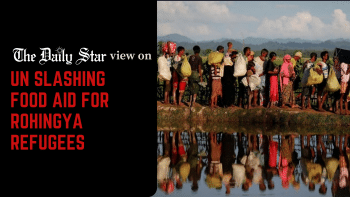


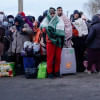
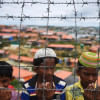
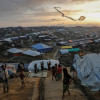

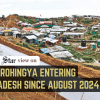

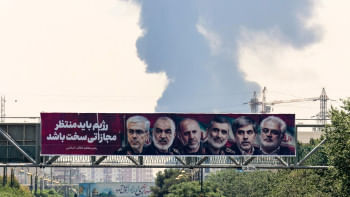
Comments